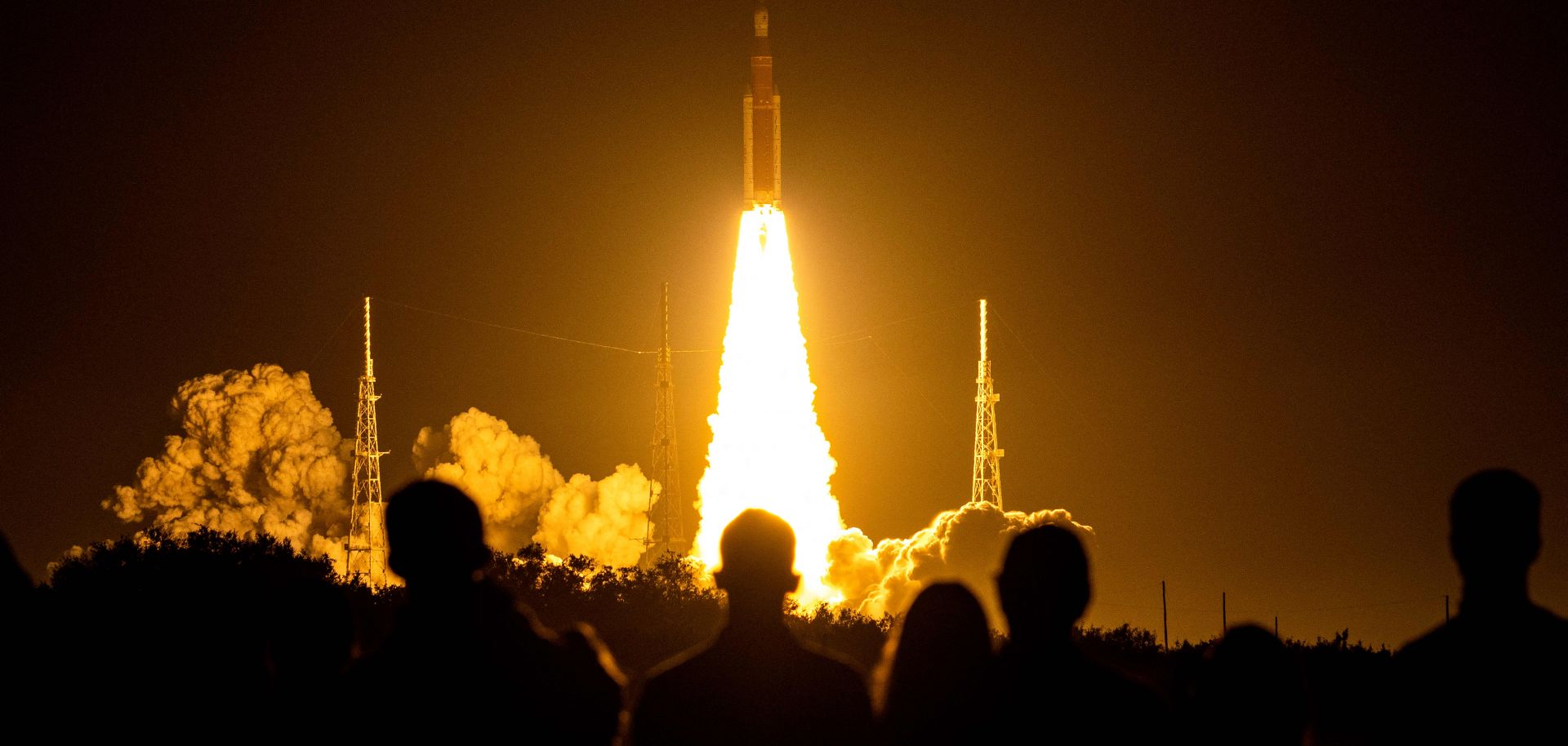NASA successfully launched the Artemis I rocket Nov. 16, sending an uncrewed Orion space capsule to the moon. This was the first launch of NASA's new Space Launch System (SLS), the most powerful rocket since NASA's Saturn V rocket during the Apollo program. The much-delayed launch is a crucial part of the Artemis program's effort to send astronauts back to the moon by 2025; more broadly, the United States is using the program to influence space governance.
The launch is intended to result in the certification of the Orion capsule and SLS for manned missions. Artemis II, the next mission under the program, will send astronauts to orbit the moon and is currently slated for a May 2024 launch. But even as technical progress is made, geopolitical constraints will continue to limit U.S. attempts to influence norms governing activity in space through the budding Artemis Accords. As space becomes more crowded with new entrants, and as the great power competition with Russia and China heats up, consensus over the international governance of space will fray.




